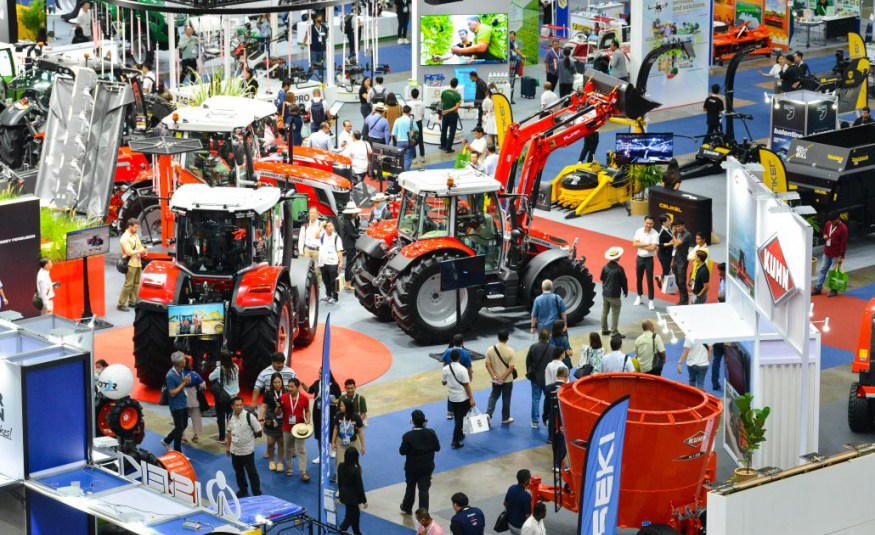Launching a proven event overseas might be more straightforward than you think, and the rewards are very real indeed, says Mr Duangdej Yuaikwarmdee, director of exhibitions at TCEB.
The successful launch of an exhibition in Southeast Asia presents you with a new revenue stream derived from work you’ve already completed, says Mr Duangdej Yuaikwarmdee, TCEB’s director of exhibitions.
For an organiser, cloning a proven domestic brand overseas can prove a more lucrative exercise than adding square metres to your existing UK event. And while some fear the risk may outweigh the reward, a geo-cloned event provides a fresh platform for existing clients while multiplying the success you’ve achieved with the original event.
When VNU Exhibitions Asia Pacific partnered with Germany’s DLG International for an Asian edition of the agricultural exhibition, Agritechnica, it did so knowing it had the support of the Thai Ministry of Agriculture and Co-operatives, the official co-host of the event.
Seven years later and the event now has a regional footprint that expands the brand beyond its newfound home in Bangkok into the rest of Southeast Asia. This year’s event welcomed 353 exhibitors from 28 countries, doubling its exhibition space to accommodate 12,129 international attendees.
Agritechnica Asia Vietnam debuts in Ho Chi Minh City 12-14 March 2025 and the Thai event has become a sustainable and successful geoclone that adds value to the original UK event by introducing new stakeholders more than 5,000 miles away.
“We look forward to expanding this successful concept further in Asia. This edition has been overwhelmingly successful for exhibitors and for visitors,” said Katharina Staske, managing director, DLG Asia Pacific, of this year’s event in Thailand.
And the value of the event to the Bureau of Foreign Agricultural Affairs of the Ministry of Agriculture and Co-operatives (MOAC) in Thailand is clear. The organisation’s director, Dr Vanida Khumnirdpetch, said the exhibition aligns with the strategic objectives of the ministry, which would remain a steadfast partner of the fair in Thailand in the future.
Here are three things to look out for when considering your first geoclone:
Accessibility
If you’re going to strike gold, the destination you select must be chosen carefully. It must be somewhere highly accessible for regional and longer-haul travel, optimised for the accommodation and flow of international visitors.
Connectivity
It helps if the host country belongs to a trading community, enabling free flowing labour and access for neighbours – neighbours with an active involvement in local exhibitions. Every active neighbour brings with them access to a new market and the opportunities present within.
Thailand’s neighbours Vietnam and Indonesia, for example, contributed between five and ten per cent of total overseas visitors at Thailand's trade shows in 2023. Seen from the perspective of the global exhibition organiser, the two countries do much to complement Thailand's offering, and far from seeing them as competitors, the added value that these countries provide for events in Thailand are facilitated by the trading benefits of the AEC.
Support
Support by a Government that actively seeks to attract global events and direct foreign investment cannot be overstated. Using Thailand as an example, its Vision 2030 programme places a focus on industries including tourism, wellness & medical, food, aviation, future automotive manufacturing, technology and finance. If you have an event in these industries, then there’s a greater degree of public sector support on offer.
A sustainable and successful geocloned event could be just what you need to help grow your business, and taking time to explore these three factors will help stand you in good stead.





